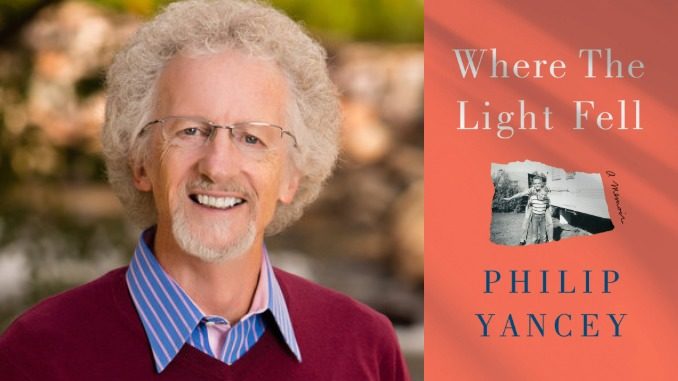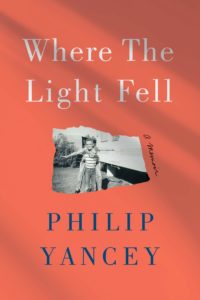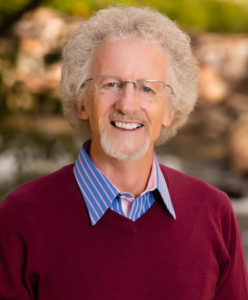
Podcast (beyond-the-page): Play in new window | Download
Subscribe: Apple Podcasts | RSS
For over forty years, Philip Yancey has written about faith. You don’t a career that lasts that long and has been so successful without intense personal motivation. Throughout his writing, Yancey has shared parts of his story. Now, in Where the Light Fell, he offers a reflective and powerful memoir of his formative years that provides the framework for his forty-year career. It’s an incredible story and I’m honored that Philip took the time to talk to me about the book and muse about how fundamentalism has changed and how it’s remained the same. There are a lot of readers and listeners who are discovering that the faith of their parents can’t be their own—but how are they to throw out what’s toxic and keep Jesus? Yancey, through his own life, offers a path through.
The Interview | Philip Yancey
This interview excerpt is lightly edited for clarity. Listen to the full interview at the player above or wherever you get your podcasts.
Josh Olds: What made it the right time for you to tell this story?
Philip Yancey: I’ve waited a long time. Most of my books are the same style. I call them a personal pilgrimage essay. This is different because it’s a story and I had to work very hard. It’s so easy for me to slip into commentary and analysis. And that’s not a good memoir. a memoir is the story that drags you along, much like a novel. And so I’ve been studying. I read a whole bunch of memoirs, just trying to figure out how it works. And there were family complications as well. So I was in no hurry to write it.
Also, I had this life-threatening automobile accident, where I was in a Ford Explorer here on a mountain in Colorado, and flipped over five different times and ended up with a broken neck and they weren’t sure I would live. As I faced that, I asked myself, What have I not been able to do yet that I that I really feel I was put on earth to do. And this was at the top of the list. In fact, it was almost alone at the top of the list. So I said, Okay, I’ve got to take it seriously. I’ve got to I got to start doing this. I was continuing to write other books at the time, but I would interview and take notes and research and just make sure I got the story right.
I describe it as a prequel, because as you said, when you read this you understood why I wrote the things that I did. And I’m sure people who have read my other books may think, Oh, he had an easy existence. He just kind of, you know, took his little Sunday School Bible teaching
classes and then gradually went to a Bible college and then sat down and write all these things that other people should believe. No, no, it was it was faith earned through difficultly—hardly won. But I came down on the side of grace.
What have I not been able to do yet that I that I really feel I was put on earth to do. And this [memoir] was at the top of the list. – Philip Yancey
Josh Olds: Near the end of the book, you write about being an adult and going back to all of your childhood places, even meeting with some of the figures from your childhood. Having had your distance from that world, what was it like to go back into it and experience it as an adult?
Philip Yancey: Yeah, I hadn’t been in an environment like that for 35 years. And the first thing that struck me was, these people aren’t as large as I thought they were. I was a kid when I went to the church. And, and now they’re middle aged, they’re kind of paunchy. And then when the pastor got up, the pastor who so often talked about hell and punishment and sin, one phrase went through my mind. The name of the church is Faith Baptist Church. And I thought, Oh, Faith, where is thy sting? Because I remember being under that cloud of fear every time I would walk into church, and I didn’t feel it anymore.
I wasn’t attracted to it. It wasn’t appealing to me. And I wasn’t scared anymore. I’ve learned to know a God of grace and love. The God who Jesus portrays as a loving Father who goes out every night and scans the horizon wondering “Is this the day my son comes home?” The fear had gone and that was—It was a good feeling. On that same tour, as you probably read, I went to some people who had been really wounded, especially African Americans, people who had been not allowed to come to our church and just kind of apologized.
The issue, though, is that not everybody emerges from that environment intact, not everybody survives. So I can look back with almost nostalgia for some of the things and joke about it and write about it or whatever. It’s not a threat to me. but there are people like my brother, who are still dominated by that pathology we were raised under. There are all these people who stood up at that final service, talking about how they met God in this church and, and that was true. But there was a parade of people not present, my brother being at the head of that parade, who could stand up and say, I lost God at this church. I’ve never been able to clean up the image of God that this church gave me of this big bully. I feel bad for those people. And I hope some of them read this book because there is hope beyond that kind of fear-based religion.
I remember being under that cloud of fear every time I would walk into church, and I didn’t feel it anymore. I wasn’t attracted to it. It wasn’t appealing to me. And I wasn’t scared anymore. I’ve learned to know a God of grace and love. – Philip Yancey
The Book | Where the Light Fell
Read the full lifeisstory.com review.
 Raised by an impoverished widow who earned room and board as a Bible teacher in 1950s Atlanta, Philip Yancey and his brother, Marshall, found ways to venture out beyond the confines of their eight-foot-wide trailer. But when Yancey was in college, he uncovered a shocking secret about his father’s death—a secret that began to illuminate the motivations that drove his mother to extreme, often hostile religious convictions and a belief that her sons had been ordained for a divine cause.
Raised by an impoverished widow who earned room and board as a Bible teacher in 1950s Atlanta, Philip Yancey and his brother, Marshall, found ways to venture out beyond the confines of their eight-foot-wide trailer. But when Yancey was in college, he uncovered a shocking secret about his father’s death—a secret that began to illuminate the motivations that drove his mother to extreme, often hostile religious convictions and a belief that her sons had been ordained for a divine cause.
Searching for answers, Yancey dives into his family origins, taking us on an evocative journey from the backwoods of the Bible Belt to the bustling streets of Philadelphia; from trailer parks to church sanctuaries; from family oddballs to fire-and-brimstone preachers and childhood awakenings through nature, music, and literature. In time, the weight of religious and family pressure sent both sons on opposite paths—one toward healing from the impact of what he calls a “toxic faith,” the other into a self-destructive spiral.
Where the Light Fell is a gripping family narrative set against a turbulent time in post–World War II America, shaped by the collision of Southern fundamentalism with the mounting pressures of the civil rights movement and Sixties-era forces of social change. In piecing together his fragmented personal history and his search for redemption, Yancey gives testament to the enduring power of our hunger for truth and the possibility of faith rooted in grace instead of fear.
“I truly believe this is the one book I was put on earth to write,” says Yancey. “So many of the strands from my childhood—racial hostility, political division, culture wars—have resurfaced in modern form. Looking back points me forward.”
I truly believe this is the one book I was put on earth to write. So many of the strands from my childhood—racial hostility, political division, culture wars—have resurfaced in modern form. Looking back points me forward.
The Author | Philip Yancey
 Philip Yancey is an American author who writes primarily about spiritual issues. His books have sold more than fifteen million copies in English and have been translated into forty languages, making him one of the best-selling contemporary Christian authors. Two of his books have won the ECPA’s Christian Book of the Year Award: The Jesus I Never Knew in 1996, and What’s So Amazing About Grace? in 1998.
Philip Yancey is an American author who writes primarily about spiritual issues. His books have sold more than fifteen million copies in English and have been translated into forty languages, making him one of the best-selling contemporary Christian authors. Two of his books have won the ECPA’s Christian Book of the Year Award: The Jesus I Never Knew in 1996, and What’s So Amazing About Grace? in 1998.
Yancey worked as a journalist in Chicago for some twenty years, editing the youth magazine Campus Life while also writing for a wide variety of magazines including Reader’s Digest, Saturday Evening Post, National Wildlife, and Christianity Today. In the process he interviewed diverse people enriched by their personal faith, such as President Jimmy Carter, Habitat for Humanity founder Millard Fuller, and Dame Cicely Saunders, founder of the modern hospice movement. In 1992 he and his wife Janet, a social worker and hospice chaplain, moved to the foothills of Colorado. His writing took a more personal, introspective turn even as his activities turned outward. His interests include skiing, climbing mountains, mountain-biking, golf, international travel, jogging, nature, theology (in small doses), politics, literature, and classical music.
“I write books for myself,” he says. “I’m a pilgrim, recovering from a bad church upbringing, searching for a faith that makes its followers larger and not smaller. I feel overwhelming gratitude that I can make a living writing about the questions that most interest me. My books are a process of exploration and investigation of things I wonder about and worry about.”
I’m a pilgrim, recovering from a bad church upbringing, searching for a faith that makes its followers larger and not smaller.
